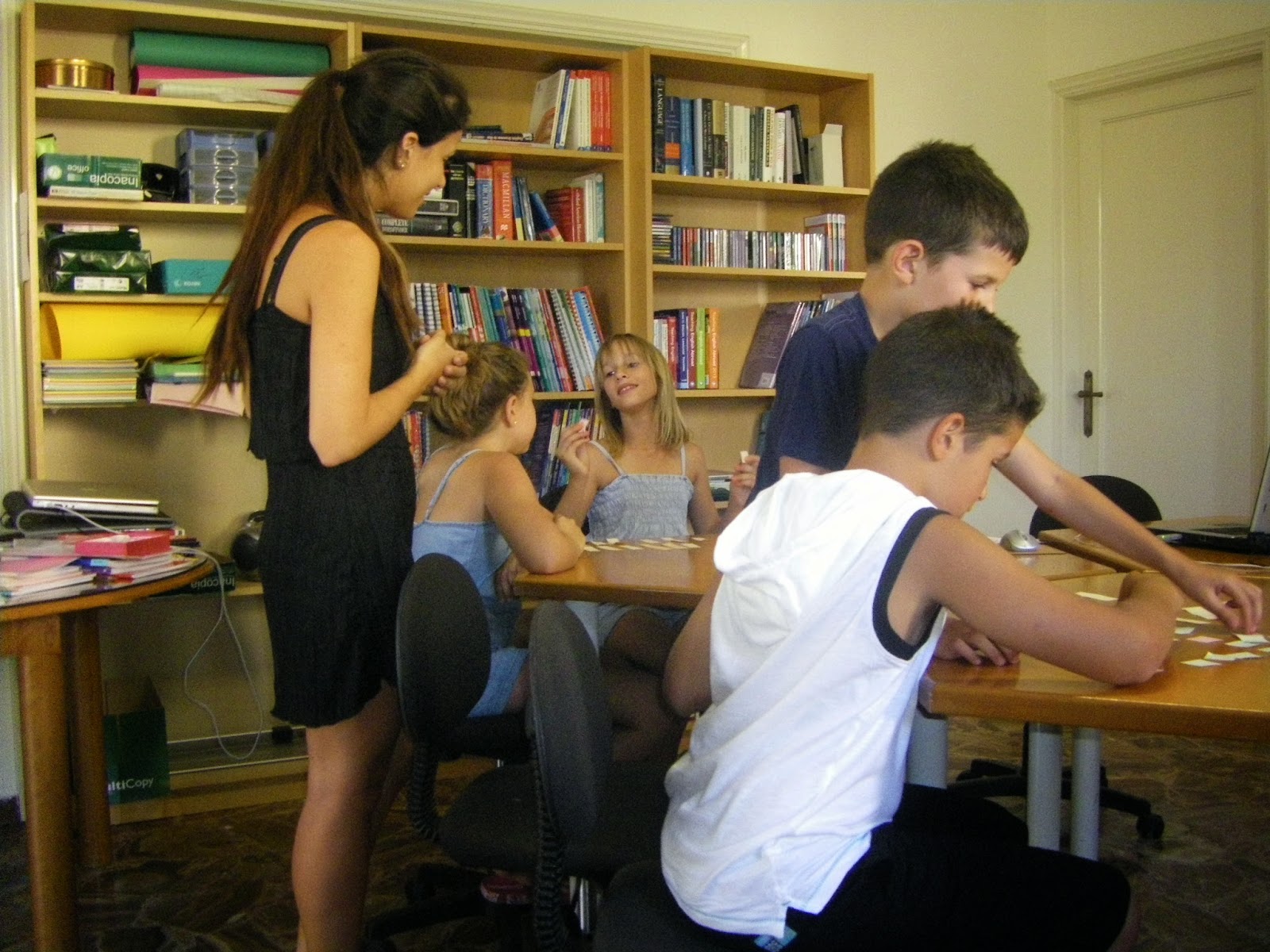Memory - as the name implies - is a good game for helping to consolidate new vocabulary, as the learners are focused on trying to remember the words. It's particularly suited to reviewing concrete nouns, so it tends to be more useful at Beginner and Elementary level.
In preparation, you need to make two sets of cards - one set has the words you want to review, and the other set typically has pictures of the things that these words name. Alternatively, the second set of cards could have definitions, synonyms, antonyms or example sentences using the word.
Depending on the level of your learners, you may want to use between six and twelve words each time. If you add more than that, the game starts to become much more difficult.
 It's also very helpful to keep the two sets of cards separate, and this is easier if you make each set
It's also very helpful to keep the two sets of cards separate, and this is easier if you make each set
with cards of different size or colour. Remember also to lay the cards face down on the table in neat rows, keeping the two sets separate.
As with any new activity, a demonstration can be much more effective than verbal instructions. Start by picking a card at random and turning it over. Then pick a card from the other set and turn it over. If the cards match you keep them. Otherwise, you put them back in the same place face down, and try to remember them.
In subsequent turns, the element of randomness decreases as players remember the cards in each position. The aim is to find as many matching pairs as possible, and the person with the most pairs at the end wins.

No comments:
Post a Comment